Why THCA Testing Matters: Understanding Potency and Purity
In the rapidly growing THCA market, not all flower is created equal. With products ranging from questionable quality to premium grade, how can consumers and businesses ensure they're getting what they pay for? The answer lies in comprehensive THCA testing.
Laboratory testing isn't just a regulatory checkbox—it's your guarantee of potency, purity, and safety. Whether you're a consumer concerned about what you're putting in your body or a business protecting your reputation, understanding why THCA testing matters is essential for navigating today's cannabis landscape.
The importance of cannabis testing extends far beyond simple compliance. It represents the difference between a safe, effective product and one that could potentially harm your health or waste your money. In an industry that's transitioning from underground markets to legitimate commerce, testing serves as the bridge to consumer confidence and product reliability.
This comprehensive guide explores the critical role testing plays in the cannabis industry and why you should never skip checking those lab results. From THCA potency testing to cannabis purity testing, we'll cover everything you need to know about ensuring THCA flower safety and making informed purchasing decisions.
Potency Testing: Knowing Exactly What You're Getting
Accurate THCA potency testing answers the most fundamental question every consumer and business needs to know: how strong is this product? In a market where THCA percentages can range from 10% to over 35%, understanding potency isn't just helpful—it's absolutely essential.
Protecting Consumers Through Transparency
Without proper testing, consumers have no way to verify product strength. Imagine someone seeking mild, manageable effects accidentally consuming extremely potent flower, leading to an uncomfortable or overwhelming experience. Conversely, someone seeking strong therapeutic effects might waste money on weak product that doesn't meet their needs. THCA lab testing benefits consumers by providing the transparency needed for truly informed decisions.
This isn't a minor concern. The difference between 15% and 30% THCA isn't subtle—it's essentially double the potency. Without testing, you're flying blind, unable to predict how a product will affect you or whether it meets your specific requirements.
Consistency for Medical and Wellness Users
For those using safe THCA flower for wellness purposes, consistent dosing is absolutely critical. These individuals aren't recreational users experimenting with different experiences—they're people who depend on predictable effects for their daily routines and wellness management.
Testing ensures they can reliably gauge their intake and maintain consistent routines without unexpected variations in potency. When every batch is tested, users can trust that their 25% THCA flower this month will deliver the same effects as their 25% THCA flower last month, enabling them to fine-tune their consumption patterns with confidence.
Accurate Labeling and Consumer Protection
In regulated markets, products must be labeled with accurate potency information. Without cannabis testing standards, this would be pure guesswork or, worse, intentional misrepresentation. Testing holds companies accountable to their claims, ensuring that a package labeled "28% THCA" actually contains what it promises.
This accountability extends beyond simple honesty—it's about building a functional marketplace where consumers can compare products meaningfully. If Company A accurately labels their 20% THCA flower while Company B inflates their labels to claim 30% for what's actually 20%, consumers can't make rational purchasing decisions. Testing creates a level playing field based on objective reality rather than marketing exaggeration.
Pricing Justification and Value Verification
Premium, high-THCA flower commands premium prices, and rightfully so. Cannabis quality control through testing validates these price points by proving the product's superior quality. When consumers see legitimate lab results showing 32% THCA alongside robust terpene profiles, they understand why they're paying more than they would for 18% THCA flower.
Conversely, testing protects consumers from overpaying for low-potency flower that's been marketed as premium through attractive packaging and clever branding. It separates substance from style, ensuring that price correlates with actual quality rather than marketing budgets.
Managing Tolerance and Consumption
When consumers know exact potency through THCA testing requirements, they can manage their tolerance better and adjust consumption accordingly. This is particularly important for regular users who need to monitor their intake to maintain desired effects without building excessive tolerance.
Understanding that you're consuming 0.3 grams of 25% THCA flower (75mg THCA) versus 0.3 grams of 15% THCA flower (45mg THCA) allows for precise adjustments. This level of control simply isn't possible without accurate potency testing backing up every product claim.
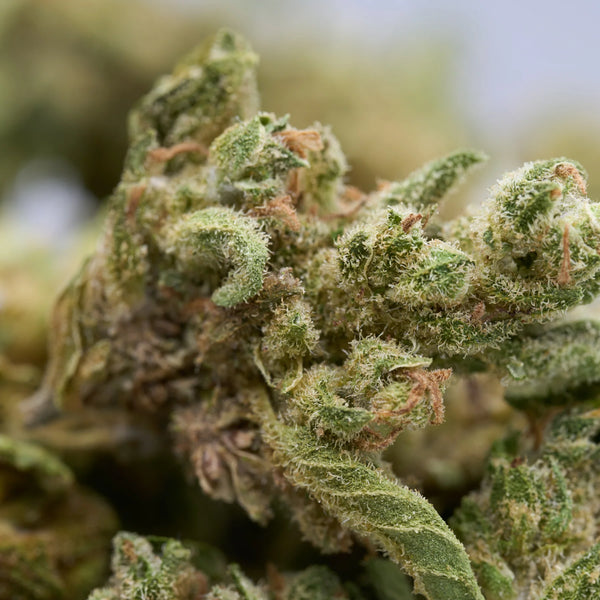
Purity Testing: Ensuring Safety Beyond Potency
While potency tells you how strong the product is, cannabis purity testing tells you if it's actually safe to consume. This distinction is crucial: the most potent flower in the world is worthless if it's contaminated with substances that could harm your health.
Pesticide Detection: Identifying Dangerous Chemicals
Cannabis plants are bioaccumulators, meaning they absorb whatever's in their growing environment—including harmful pesticides that were used to protect crops from insects, molds, and other threats. Some of these pesticides become even more toxic when heated and inhaled, creating dangers that aren't immediately obvious.
Pesticide testing THCA screens for hundreds of pesticide compounds, ensuring your THCA flower is free from dangerous chemicals. This isn't theoretical paranoia—certain pesticides like myclobutanil convert to hydrogen cyanide when burned, creating a serious health hazard with every inhalation. Other pesticides can cause neurological damage, respiratory issues, or long-term organ damage with repeated exposure.
Testing catches these contaminants before they reach consumers, protecting public health and holding cultivators accountable to safe growing practices. For consumers with compromised immune systems or respiratory conditions, this protection is literally life-saving.
Heavy Metal Screening: Preventing Toxic Accumulation
Soil contamination can lead to heavy metal accumulation in cannabis plants. Heavy metals cannabis testing detects lead, arsenic, cadmium, and mercury—substances that can cause serious health issues with repeated exposure.
Unlike acute toxins that cause immediate symptoms, heavy metals accumulate in your body over time, particularly in organs like the liver, kidneys, and brain. This makes them especially insidious: you might not notice any problems initially, but years of exposure to contaminated cannabis could lead to cognitive decline, kidney disease, or other serious conditions.
Testing catches these contaminants at the source, ensuring that THCA product safety includes protection from long-term toxic accumulation. This is particularly important given that many cannabis consumers use products regularly over extended periods.
Microbial Safety: Protecting Against Biological Contaminants
Mold, mildew, bacteria, and yeast can all grow on improperly cured or stored cannabis. Some molds produce mycotoxins that are dangerous when inhaled, causing respiratory infections, allergic reactions, or worse. For immunocompromised individuals, mold exposure from contaminated cannabis can trigger serious, potentially life-threatening infections.
Microbial testing, including tests for E. coli, Salmonella, and Aspergillus, ensures your flower is safe from biological contaminants. This testing is particularly critical because visual inspection often can't detect dangerous levels of microbial contamination—what looks fine to the naked eye might be teeming with harmful organisms.
Proper curing, storage, and handling are essential for preventing contamination, but testing provides verification that these practices were actually effective. It's the final checkpoint before products reach consumers.
Residual Solvent Detection: Checking for Processing Chemicals
While more relevant for concentrates and extracts, some flower may be tested for residual solvents if any extraction or processing has occurred. These chemicals—including butane, propane, ethanol, and hexane—should be below safety thresholds if present at all.
Even trace amounts of certain solvents can cause health issues when inhaled repeatedly, making this testing component of cannabis testing standards important for comprehensive safety verification.
The Real Dangers of Untested Products
Without purity testing, you could unknowingly be inhaling:
- Dangerous pesticides that convert to toxic compounds when burned
- Heavy metals that accumulate in your body over time, causing gradual organ damage
- Mold spores that can cause respiratory infections, particularly in vulnerable populations
- Harmful bacteria that pose immediate and long-term health risks
- Residual solvents that damage lungs and other organs with repeated exposure
The consequences of contaminated cannabis aren't theoretical—there have been documented cases of hospitalizations, serious infections, and chronic health problems from contaminated products. Testing is your safety net, the only reliable way to know that what you're consuming won't harm you.
Quality Verification: Beyond Basic Safety Standards
Beyond basic safety, cannabis quality control testing verifies overall product excellence, helping consumers identify truly premium flower and giving cultivators objective proof of their craftsmanship.
Terpene Profiles: The Aromatic Blueprint
Testing reveals the complete terpene profile—the aromatic compounds that influence flavor, smell, and effects. Terpenes aren't just about taste; they interact with cannabinoids through the entourage effect to modulate and enhance your experience.
A comprehensive terpene analysis shows you which specific terpenes are present and in what concentrations. Myrcene might promote relaxation, limonene could elevate mood, pinene might enhance focus, and caryophyllene can provide anti-inflammatory benefits. Understanding your flower's terpene profile helps you select products that match your preferences and needs.
This is where THCA lab testing benefits extend beyond safety into the realm of experience optimization. Two flowers with identical THCA percentages can produce dramatically different effects based on their terpene profiles, and testing reveals these crucial differences.
Moisture Content: The Goldilocks Factor
Proper moisture levels—typically 5-12%—prevent mold while keeping flower fresh and pleasant to consume. Too dry means harsh, throat-scratching smoke that burns too quickly. Too wet invites mold growth and creates a product that won't burn properly.
Testing moisture content ensures your flower is in the sweet spot: dry enough to be shelf-stable and mold-resistant, but moist enough to preserve terpenes, produce smooth smoke, and provide an enjoyable consumption experience.
Foreign Material Detection: Ensuring Premium Quality
Some comprehensive labs check for stems, seeds, and other unwanted material that shouldn't be present in premium flower. While not always part of standard testing panels, this verification ensures you're paying for actual flower rather than non-consumable plant material.
This testing component speaks to overall processing quality and attention to detail. Premium cultivators and processors carefully remove stems, seeds, and leaves, while less scrupulous operators might leave significant amounts of this material in final products to increase weight and apparent volume.
Complete Cannabinoid Profiles: The Full Spectrum
Testing shows the full spectrum of cannabinoids, not just THCA. This reveals whether you're getting a well-rounded product with beneficial minor cannabinoids like CBG (cannabigerol), CBC (cannabichromene), CBN (cannabinol), and others.
These minor cannabinoids contribute to the entourage effect and provide their own unique benefits. CBG, for example, may support focus and clarity, while CBN is associated with relaxation. A complete cannabinoid profile helps you understand exactly what you're consuming and how different compounds might work together.
Quality testing through THCA testing requirements separates premium craft flower from mass-produced, low-grade product. It gives cultivators who invest in quality growing practices, careful genetics selection, and meticulous processing an objective way to prove their product's superiority.
Regulatory Compliance: Meeting Legal Requirements
In legal cannabis markets, testing isn't optional—it's mandatory. Understanding THCA testing regulations is essential for businesses and informative for consumers who want to understand the regulatory landscape.
Meeting State-Specific Requirements
Every regulated state has specific testing requirements for cannabis products. These requirements vary significantly: some states mandate comprehensive testing for potency, pesticides, heavy metals, microbial contaminants, and residual solvents, while others have more limited requirements.
Failure to test according to state regulations means products can't legally be sold. This isn't a suggestion or recommendation—it's a legal requirement with serious consequences for violations. Testing laboratories must often be licensed by the state and meet specific accreditation standards to ensure result accuracy.
Protecting Businesses from Liability
Selling untested or contaminated products exposes businesses to lawsuits, license revocation, fines, and even criminal liability in some jurisdictions. One batch of contaminated flower could destroy a business's reputation, result in expensive recalls, and trigger regulatory action that affects the entire operation.
Testing protects companies legally and financially by providing documentation that products met safety standards at the time of testing. This documentation becomes crucial if questions arise about product safety or quality. It demonstrates due diligence and good faith efforts to protect consumer safety.
Building Consumer Trust Through Regulation
Markets with mandatory testing requirements generally have higher consumer confidence. People know that regulated, tested products meet minimum safety standards set by regulatory authorities. This confidence encourages market growth, attracts new consumers who might otherwise avoid cannabis products, and helps legitimize the industry.
The presence of cannabis consumer safety regulations signals to consumers that someone is watching, that there are consequences for selling dangerous products, and that their wellbeing is considered important by regulators.
Preparing for Interstate Commerce
As cannabis regulations evolve at the federal level, testing standards may become essential for products crossing state lines. Businesses that already maintain high testing standards will be positioned to participate in interstate commerce when it becomes legal, while those cutting corners will be left behind.
Standardized testing requirements could eventually emerge at the federal level, similar to how the FDA regulates food and pharmaceuticals. Companies establishing robust testing protocols now are preparing for this future.
Voluntary Testing in Less Regulated Markets
Even in less-regulated THCA markets operating under hemp laws, voluntary testing demonstrates a commitment to quality and safety that builds brand reputation. Forward-thinking companies test their products even when not legally required because they understand the importance of cannabis testing for consumer safety and business success.
This voluntary testing becomes a competitive advantage, differentiating responsible businesses from those prioritizing short-term profits over consumer welfare. Savvy consumers increasingly seek out tested products, making voluntary testing a smart business decision even absent regulatory mandates.
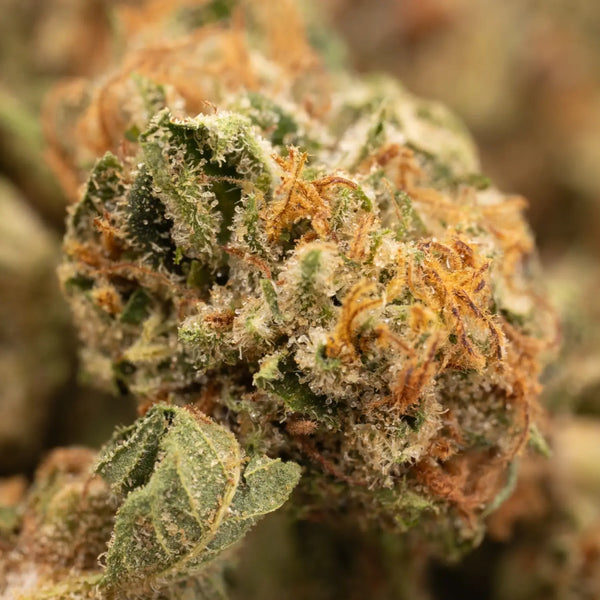
Building Trust and Transparency in the Cannabis Industry
Testing creates accountability in an industry that historically operated in shadows, where claims couldn't be verified and consumers had to trust sellers without any objective evidence.
Third-Party Verification: Unbiased Results
Independent lab testing provides unbiased results that aren't controlled by the companies selling products. This third-party verification is crucial for credibility. Companies can't simply claim their products are safe and potent—they must prove it through independent analysis.
The independence of testing laboratories is essential. Labs that maintain ISO 17025 accreditation follow international standards for testing and calibration, ensuring their results are accurate, reproducible, and reliable. This accreditation process involves regular audits, proficiency testing, and quality control measures that maintain laboratory integrity.
Empowering Informed Consumer Choice
Transparency through why THCA testing matters empowers consumers to vote with their wallets. They can compare products objectively based on actual data rather than marketing claims, and they can reward companies that prioritize quality with their business.
This creates a powerful feedback loop: companies that test their products and publish results attract quality-conscious consumers, while those selling untested products lose market share to more transparent competitors. Over time, this market pressure raises standards across the entire industry.
Enhancing Industry Credibility
As cannabis continues going mainstream, rigorous testing standards help legitimize the industry. This attracts institutional investment, normalizes consumption in the eyes of skeptical populations, and reduces the stigma that has historically surrounded cannabis.
Testing demonstrates that cannabis can be produced, processed, and sold with the same professional standards as any other consumer product. It shows regulators, investors, and the general public that the industry takes safety seriously and is worthy of the same respect afforded to other legal industries.
Driving Quality Competition
When all products are tested, companies must compete on actual quality rather than marketing hype alone. This raises standards across the entire industry as cultivators and processors invest in better practices to achieve superior test results.
This competition benefits everyone: consumers get better products, responsible businesses thrive, and the industry's overall reputation improves. Testing transforms cannabis from a market where marketing determines success to one where quality and safety drive competitive advantage.
Early Problem Identification
Testing catches issues early in the supply chain, allowing problems to be addressed before products reach consumers. A batch that fails pesticide testing gets quarantined and destroyed rather than sold, preventing potential health crises and protecting both consumers and the company's reputation.
This early intervention system protects public health while giving producers feedback about their cultivation and processing practices. A pattern of failed tests indicates underlying problems that need correction, while consistently passing tests validates that procedures are working correctly.
Common Testing Misconceptions: Separating Fact from Fiction
Let's clear up some myths that persist in the cannabis community and marketplace:
Myth 1: "High THCA Percentage is All That Matters"
Reality: The entourage effect means terpenes and minor cannabinoids significantly impact your experience. A 20% THCA flower with a robust terpene profile—rich in myrcene, limonene, pinene, and caryophyllene—often provides better, more well-rounded effects than a 30% THCA flower with depleted terpenes and minimal minor cannabinoids.
Focusing exclusively on THCA percentage is like judging a meal solely by calorie count while ignoring nutrition, flavor, and preparation quality. The complete chemical profile matters far more than any single number.
Myth 2: "Testing is Just for Regulated Markets"
Reality: Even in hemp-derived THCA markets with less regulatory oversight, responsible companies test voluntarily to ensure quality and build consumer trust. These companies understand that safe THCA flower isn't just about legal compliance—it's about ethical business practices and consumer welfare.
Voluntary testing often exceeds minimum regulatory requirements, with companies testing for additional contaminants or conducting more frequent testing than laws require. This demonstrates genuine commitment to quality rather than mere compliance.
Myth 3: "All Labs Produce Accurate Results"
Reality: Lab quality varies significantly. ISO 17025 certified labs meet international standards for competency, impartiality, and consistent operation. They undergo regular audits, participate in proficiency testing programs, and maintain strict quality control procedures.
Uncertified labs may produce inconsistent or inaccurate results due to inadequate equipment, insufficient training, poor quality control, or even intentional manipulation to please clients. "Lab shopping"—the practice of testing at multiple labs until you get favorable results—is a known problem in the industry.
Consumers and businesses should verify that testing laboratories hold appropriate certifications and have good reputations for accuracy and integrity.
Myth 4: "One Test Lasts Forever"
Reality: THCA degrades over time, particularly when exposed to light, heat, and air. Test results represent a snapshot of that specific batch at that specific time, not a permanent characteristic of the product.
A batch tested at 28% THCA six months ago might test significantly lower today if it's been improperly stored. Similarly, contamination can occur after initial testing if products aren't handled properly. Fresh, recent test results are far more reliable than old ones.
Myth 5: "Tested Products Are Always Safe"
Reality: While testing dramatically improves safety, it's not a perfect guarantee. Testing only catches contaminants that are specifically tested for, and samples might not perfectly represent entire batches due to inhomogeneity. Additionally, improper storage or handling after testing can introduce new contamination.
Testing is an essential safety tool, but it works best as part of a comprehensive quality control system that includes proper cultivation practices, careful processing, appropriate storage, and responsible handling throughout the supply chain.
The Cost of Not Testing: Understanding the Risks
Skipping testing carries significant risks that far outweigh the costs of comprehensive laboratory analysis:
Health Risks: The Primary Concern
Consuming contaminated cannabis can cause respiratory infections from mold and bacteria, pesticide poisoning with symptoms ranging from headaches to serious organ damage, or heavy metal toxicity that accumulates over time and causes lasting health problems.
For immunocompromised individuals, contaminated cannabis can be life-threatening. Aspergillus infections in people with weakened immune systems can be fatal. Even healthy individuals can develop serious respiratory problems from moldy or bacteria-contaminated flower.
The healthcare costs of treating contamination-related illnesses can be enormous, far exceeding any money saved by purchasing untested products. More importantly, some health damage from heavy metal exposure or severe pesticide poisoning may be permanent.
Financial Waste: Throwing Money Away
Without potency verification, you might pay premium prices for low-quality product that doesn't deliver the effects you're seeking. You're essentially buying blind, with no way to verify that you're getting value for your money.
This is particularly frustrating for regular consumers who depend on consistent quality. Discovering that your "premium" purchase is actually low-potency flower means you've wasted money and need to consume more product to achieve desired effects, compounding the financial loss.
Legal Liability: Business-Ending Consequences
Businesses selling untested products face lawsuits from harmed consumers, regulatory action including fines and license suspension or revocation, and reputation damage that can destroy customer trust built over years.
A single incident involving contaminated products can generate devastating publicity, drive away customers, and make it impossible to rebuild trust. The business costs of recalls, legal fees, and lost revenue typically dwarf any money saved by avoiding testing.
Unknown Dosing: Playing Russian Roulette
Without accurate potency information, it's impossible to dose consistently or safely. You might consume far more or far less than intended, leading to uncomfortable experiences or ineffective results.
This unpredictability is particularly problematic for people using cannabis for wellness purposes who need reliable, consistent effects. It's also concerning for anyone who needs to remain functional while consuming, as unexpected high potency can impair judgment and performance.
Reputation Damage: The Lasting Cost
For businesses, selling untested or contaminated products destroys reputation in an age where information spreads instantly through social media and review platforms. Recovery from reputation damage is difficult and sometimes impossible.
For consumers, purchasing from untested sources risks becoming known as someone who takes unnecessary risks with their health or lacks discernment. While less serious than business reputation damage, social reputation still matters in many contexts.
The small cost of testing—typically a few hundred dollars per batch—is nothing compared to these potential consequences. It's an investment in safety, quality, and peace of mind that pays dividends every time.
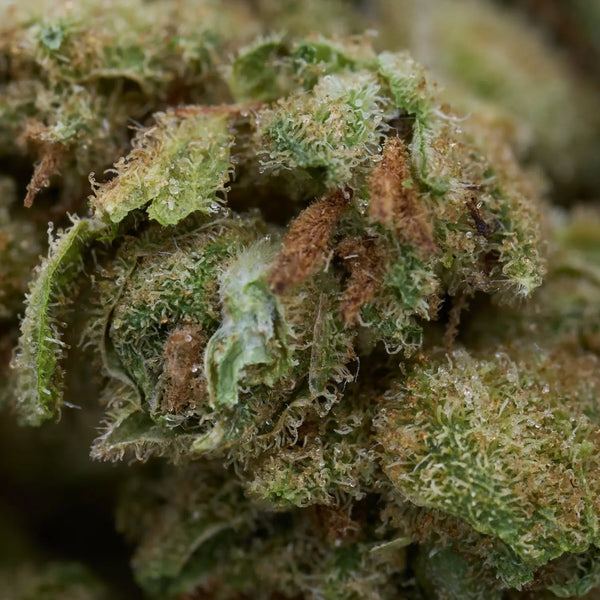
Conclusion: Testing as a Non-Negotiable Standard
Why THCA testing matters can be summed up simply: it protects consumers from contaminated products, ensures accurate potency labeling, enables informed choices, and builds trust in the cannabis industry. These aren't minor benefits—they're fundamental requirements for a functional, safe marketplace.
Whether you're a consumer looking for safe, effective products or a business building a reputation for quality, comprehensive testing through THCA testing requirements is non-negotiable. It's the foundation upon which the entire legitimate cannabis industry must be built.
In a market filled with untested products and exaggerated claims, laboratory verification provides the objective truth you need to make smart decisions. It separates reputable businesses from careless or deceptive operators. It protects your health, your wallet, and your peace of mind.
The THCA lab testing benefits extend beyond individual transactions to shape the entire industry. As more consumers demand tested products and more businesses commit to comprehensive testing, the overall quality and safety of cannabis products improves. This creates positive momentum that benefits everyone in the ecosystem.
Next time you purchase THCA flower, don't just ask for the prettiest buds or the highest THCA percentage—ask for the lab results. Verify that the product has been tested for potency, pesticides, heavy metals, and microbial contaminants. Choose products from companies that prioritize cannabis consumer safety through transparent, third-party testing.
Your health, wallet, and peace of mind will thank you. And by supporting businesses that test their products, you're helping build an industry that values quality, safety, and transparency over shortcuts and deception.
Frequently Asked Questions About THCA Testing
What is THCA testing and why is it important?
THCA testing is laboratory analysis that determines the cannabinoid content, purity, and safety of cannabis flower. It's important because it verifies product potency, detects harmful contaminants like pesticides and heavy metals, and ensures products are safe to consume. Without testing, consumers have no way to verify product claims or safety.
How much does THCA testing cost?
Testing costs vary depending on the comprehensiveness of the analysis, typically ranging from $100-500 per batch. A basic potency test might cost $100-150, while a full panel including potency, pesticides, heavy metals, microbial screening, and terpenes can cost $300-500. While this seems expensive, it's a small fraction of a product batch's value and essential for safety.
What should THCA flower be tested for?
Comprehensive testing should include: cannabinoid potency (THCA, THC, CBD, and minor cannabinoids), pesticide screening (hundreds of compounds), heavy metals (lead, arsenic, cadmium, mercury), microbial contaminants (mold, yeast, bacteria including E. coli and Salmonella), moisture content, and terpene profiles. Some programs also test for residual solvents and foreign material.
How do I read a THCA lab test result?
Lab results typically show cannabinoid percentages (look for THCA%, total THC after decarboxylation), a pass/fail status for contaminant testing, terpene profiles with percentages of individual terpenes, and testing dates. Verify the lab is licensed and certified, check that the product batch number matches the test, and ensure tests are recent (within 6 months ideally).
Can THCA flower pass tests but still be unsafe?
While rare, it's possible. Testing only detects what it's designed to find—if unusual contaminants aren't in the testing panel, they won't be detected. Additionally, samples might not perfectly represent entire batches, and contamination can occur after testing during improper storage or handling. However, tested products are dramatically safer than untested ones.
How often should THCA flower be tested?
Each batch should be tested before sale. A batch is typically defined as flower from the same harvest lot processed together. Even if you're buying from the same producer, each new batch requires new testing as growing conditions, processing, and plant genetics can vary between harvests.
What's the difference between in-house and third-party testing?
In-house testing is conducted by the company producing the product, while third-party testing is performed by independent laboratories. Third-party testing is more credible because labs have no financial incentive to produce favorable results. Many regulated markets require third-party testing specifically to prevent conflicts of interest and ensure accuracy.
What certifications should a cannabis testing lab have?
Look for ISO/IEC 17025 accreditation, which demonstrates the lab meets international standards for competency and quality management. Labs should also hold any state-required licenses for cannabis testing. ISO 17025 accreditation involves regular audits, proficiency testing, and quality control measures that ensure reliable results.
Does THCA testing detect synthetic cannabinoids?
Standard THCA testing panels typically don't screen for synthetic cannabinoids unless specifically requested. If you're concerned about synthetic cannabinoid contamination (more common in certain product types), look for labs that offer specialized testing for these compounds. Always purchase from reputable sources to minimize this risk.
How long are THCA test results valid?
Most regulatory agencies consider test results valid for 6-12 months from the testing date, though the actual degradation rate depends on storage conditions. THCA degrades when exposed to light, heat, and oxygen, so test results become less accurate over time. Ideally, look for products with recent testing (within 3-6 months) and proper storage.
What should I do if I bought untested THCA flower?
If you've already purchased untested flower, you can either: accept the unknown risk if the product comes from a trusted source you've used before without issues, dispose of it if you're concerned about safety (particularly if you're immunocompromised), or pay for independent testing yourself, though this is often not cost-effective for small quantities. Going forward, prioritize tested products from transparent companies.
Are there different standards for hemp-derived vs. marijuana THCA testing?
Yes, regulatory requirements often differ significantly. Marijuana programs typically have comprehensive testing requirements including potency, pesticides, heavy metals, and microbial screening. Hemp-derived THCA products may face less stringent requirements depending on state law. However, regardless of legal category, the same safety concerns exist, making comprehensive testing equally important for both.

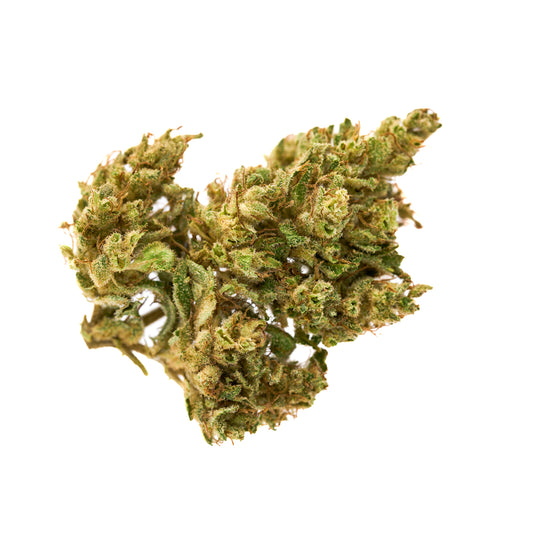
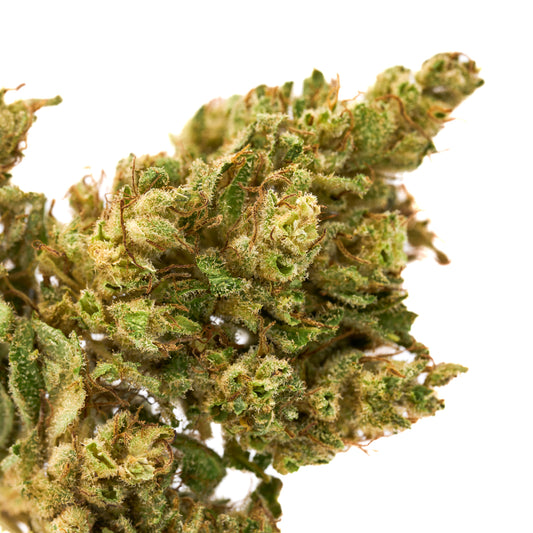
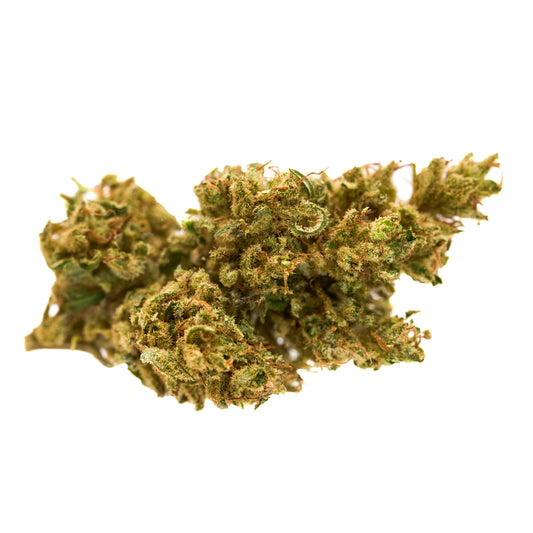
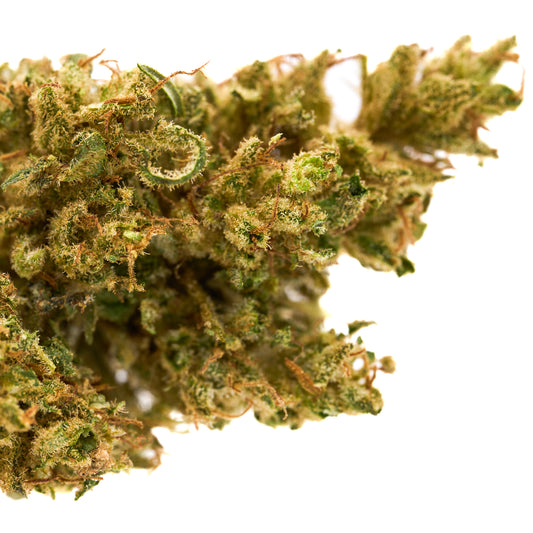
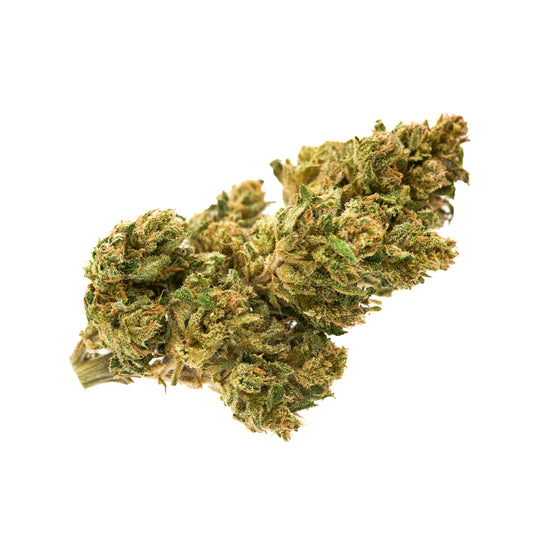
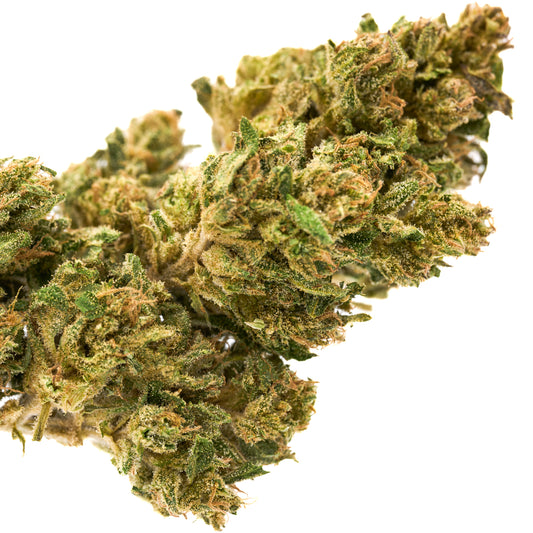



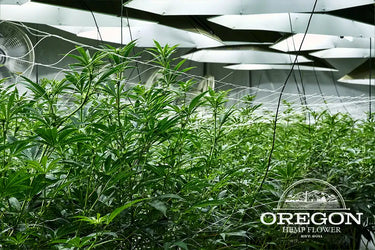

Leave a comment
Please note, comments need to be approved before they are published.